
In part one of this two-part series, Meaghan O’Connell and I discussed our experience reading David Copperfield by Charles Dickens. At that point, we were a couple of hundred pages into the novel. Now we are back to continue that conversation, and to illuminate for our audience just what it means to read (or not read) a classic in 2016…and to no doubt embarrass ourselves further in the name of honesty, entertainment, and, of course, literature.

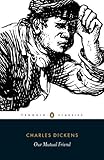 Edan Lepucki: I’m 80 pages from finishing David Copperfield…and I’ve given up. I just can’t do it anymore. The endless scenes with characters’ verbal tics on full display; the moralizing about the beauty of a woman’s purity; Mr. Micawber’s debts and heart; Uriah Heep’s writhing. I just can’t. I am so bored! I found that I was barely reading and when I stop reading my life takes on a sad, lifeless tone, like my hair before I get my blonde highlights. My former English professor, the brilliant David Walker, wondered on Twitter why we didn’t try Our Mutual Friend or Bleak House. Why didn’t we? I guess I wanted a comic novel, a famous crowd pleaser. But I am far from pleased.
Edan Lepucki: I’m 80 pages from finishing David Copperfield…and I’ve given up. I just can’t do it anymore. The endless scenes with characters’ verbal tics on full display; the moralizing about the beauty of a woman’s purity; Mr. Micawber’s debts and heart; Uriah Heep’s writhing. I just can’t. I am so bored! I found that I was barely reading and when I stop reading my life takes on a sad, lifeless tone, like my hair before I get my blonde highlights. My former English professor, the brilliant David Walker, wondered on Twitter why we didn’t try Our Mutual Friend or Bleak House. Why didn’t we? I guess I wanted a comic novel, a famous crowd pleaser. But I am far from pleased.
Where are you in the novel? Are you compelled to continue?
I am left with a few thoughts from this project. The first one being, what does “Dickensian” mean? Want to take a stab at defining that, based on what you’ve read of Davy C.?
Meaghan O’Connell: Oh, Edan. When I got this email from you I cheered out loud. I still have 200 pages to go and I can barely remember what it’s like to truly love a book. I am so behind and the book is starting to feel endless. Every night I tell myself, “Okay, go to bed early. Read for an hour or more.” Then I get in bed, read two pages, and fall asleep at 9 pm or whatever it is.
I am still a little invested, mostly in D.C.’s romantic prospects, but I, too, would prefer to never read the name Uriah Heep again. I think I want to finish it, but I need to bring a few more books into the rotation, save it for when I am in a certain mood, I guess the mood to be somewhat tediously entertained?
IT’S SO LONG.

 I wanted to read David Copperfield because supposedly it is the author’s favorite, and based largely/vaguely on his own life. And the book does make me curious about Dickens himself, or at least the narrator. Like, hi, D.C., please, step forward, talk to me in like 200 pages instead of 860. Maybe tell a different story altogether? Great Expectations perhaps? I probably should have just re-read that. I love reading things I read when I was younger and understanding things that passed by me then.
I wanted to read David Copperfield because supposedly it is the author’s favorite, and based largely/vaguely on his own life. And the book does make me curious about Dickens himself, or at least the narrator. Like, hi, D.C., please, step forward, talk to me in like 200 pages instead of 860. Maybe tell a different story altogether? Great Expectations perhaps? I probably should have just re-read that. I love reading things I read when I was younger and understanding things that passed by me then.
Dickensian. I think in casual conversation people mean it to be “about poor people”? Things that are bleak. I picture a small boy with soot on his cheeks, begging for bread, maybe a starving cat in the background. It’s all very grey. There are waistcoats, which it turns out are simply VESTS, and they are threadbare. I think this is based almost entirely on Oliver Twist?
Having read 70 percent of the book I would say that I guess that isn’t totally off, but if you said a book was Dickensian, well, for one, I would not want to read it, at least not for a long time. I would imagine it to be bloated but funny, obsessed with class, tragicomic? An orphan? A lot of failed romance but probably some sort of happy ending (I may never know the end of this, but he does reference his future children at some point — which was weird!)
It’s been strange to read a book I just like okay, to be missing that big propulsive drive in my life. This book is not really making me think about anything? It’s not inspiring, or not in any way that is conscious. I guess I am inspired that Dickens took up so much damned space. Mostly it’s felt, much as it did the last time I read his work, like homework. I need a breath of fresh air! I have no urge to write lately and I never thought I’d say this/provoke lovers of Victorian literature in this way, but I blame Charles Dickens.
Have you really abandoned poor Davey? (Edan, you know he probably has abandonment issues!!) Are you on to other books? What’s it like on the other side?! I’m really left feeling like, God, maybe I should just watch a BBC version of this book and see if he ends up marrying Agnes after all. I really wouldn’t recommend it to anyone who is not a scholar of some kind, which seems like a pretty brazen pronouncement, but, you know what, I stand by it. Do not read this book!! Life is short.
Edan: What’s amazing to me is how many people, when I told them I was reading David Copperfield, said that they had read and loved the book when they were younger. This is startling to me because, while Dickens isn’t difficult on the sentence level, there are still quite a few cultural and era-specific references that were unclear to me, as a worldly adult. (For instance, all the stuff around Copperfield’s career, before he starts writing for money, confused me.) And the intense moralizing about young women made me worried about all the women who read this as kids. Don’t run off with the hot asshole, little girls, or you will never recover! (Well, hey, that’s maybe kind of a good lesson to live by…) It did make me consider David C. as a (very) long young adult novel, or even middle grade novel. The reader, for a time, is Davy’s age, and can grow along with him. There were a lot of plot turns that I saw coming for hundreds of pages, which might be less obvious to a younger audience.
When I think about “Dickensian” I, like you, first imagine waistcoats and soot, a bad cough. Certainly orphans. But also long narratives that rely very much on coincidence. Now that I’ve read most of David Copperfield, I’d say, too, that the Dickensian style has colorful and immediately memorable characters with distinct names and ways of speaking: Peggoty, Mr. Dick, Miss Murdstone. As much as I began to dislike this novel, I’m in awe of how efficiently he brought these figures to life, and with such joy, it seems.
In his terrific introduction to the Modern Library edition of the novel, David Gates does a bang-up job of citing the book’s flaws, from Mr. Micawber’s anti-semitic one-liner to Dickens’s flawed and flat depiction of women, such as Agnes, whom Gates calls “the celestially backlit hall monitor.” He goes on to argue that Dickens “writes best about damaged, dark, and dangerous women.” Gates cites the scarred Rosa Dartle in the novel, whom I was also very much mesmerized by. Aside from the needless length of the book, I do think the depictions of women were what made me finally put it down. I started skimming right around when Dora asked Davy to call her Child Wife. Just no.
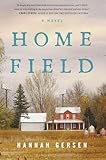
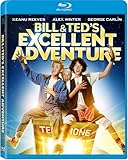
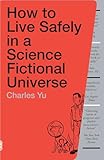 Since you asked, I’ve given up D.C. for good and I’m enjoying reading again. I ate up Charles Yu’s metafictional How to Life Safely in a Science Fictional Universe, which is like Italo Calvino crossed with Bill & Ted’s Excellent Adventure crossed with George Saunders. Then I read the forthcoming debut novel Home Field by The Millions staff writer Hannah Gersen, which was so beautiful and compelling that she and I joked my blurb should be: “Better than Dickens!”
Since you asked, I’ve given up D.C. for good and I’m enjoying reading again. I ate up Charles Yu’s metafictional How to Life Safely in a Science Fictional Universe, which is like Italo Calvino crossed with Bill & Ted’s Excellent Adventure crossed with George Saunders. Then I read the forthcoming debut novel Home Field by The Millions staff writer Hannah Gersen, which was so beautiful and compelling that she and I joked my blurb should be: “Better than Dickens!”
Speaking of Hannah, she told me that she appreciates Dickens’s influence more than Dickens’s work. What do you think this means?
Meaghan: It’s funny you wrote today because I picked the book back up last night! I’d read enough of Charlotte Shane and then Rebecca Curtis to be ready to reenter the fore. It was very pleasant. If I can keep reading intense lyric memoirs and bizarro short stories between chapters of this doorstopper, I might just finish it.
The “my great love is so delicate!” shit is pretty tedious, though I did laugh when he described her to Agnes, making excuses for how fragile she was, how she couldn’t be troubled with this or that. Getting relationship advice from the unassuming girl everyone else knows you SHOULD be with felt so modern — a satisfying set up! If he isn’t headed for one in a series of falls and if he doesn’t end up with backlit Agnes, I will be bitter indeed.
And you’re right — efficient! Who would have thought we’d use that word to describe Dickens? The very name Miss Murdstone makes me so angry. Mr. Micawber evokes dread, awkwardness. They flit in and out of the story so any lasting impression seems like an achievement. There’s a sort of necessary hamfistedness? Or if it’s deliberate maybe it’s just over-the-top, but good over-the-top. He’s having fun with it, there seems to be this continual raised eyebrow throughout, and yet he maintains such sincerity with David Copperfield! Maybe that’s what feels sort of YA about it? He’s so pure of heart and unflagging and “honorable” and so on. He’s good-humored but never totally self-aware? It’s SO sincere even as it’s funny.
Poor kids being assigned this book in school. At least with Great Expectations there is the spider cake to cling to.
I totally get the influence versus the work thing, what a smart, gentle thing to say, like maybe he might read this. A friend, when I told her I wanted to read some Dickens, was like, “Or maybe read some Nancy Mitford? Or Jane Austen even?”
To me “Dickensian” evokes what I was trying to get at earlier, a sense of playfulness (I hate when adults say “play” but there it is), a very kind evisceration, wit, and a noble heart. It is fun, though I think it’s more fun to have that foundation and then undercut it. It’s thrilling in a way, how tired so much of it feels, while still being full of life. To have him be brilliant but also to feel like we (“we” lol) have made progress, literature-wise! Is that crazy to say? We’re better than you now, Dickens, but thank you for your service.
Edan: I love your phrase, “a very kind evisceration” — this is such an accurate description of what Dickens is up to in David Copperfield. I definitely appreciate this gift of his. But gift-appreciation is different from pure enjoyment.
Again, though, I circle back to this idea that perhaps we chose the wrong book; certainly we wouldn’t say that the contemporary novels we adore are better than, say, Bleak House, which everyone seems to agree is a masterpiece. I would bet that most Dickens scholars and lovers would choose another book of his for us to judge. Maybe David Copperfield is too of its time to truly work for contemporary readers such as ourselves. I get the sense that it was written to be an immersive, rousing text for the readers of its day; perhaps his more “serious” novels were striving for something other than immersion: complication, profundity.
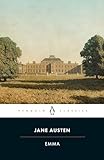
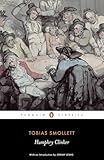
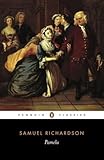 All the 18th-century literature I read in college, like Pamela, or Humphry Clinker, were fun to talk about but a chore to read — their storytelling techniques were just so obvious and clunky. While David Copperfield was a far better read than those novels, I’m still having a better time discussing the book with you than I did reading said book. Back when I was in that 18th-century literature class, I remember feeling that The Novel, as a machine to entertain and move the reader, had become much sleeker and more powerful over the years. But by the 19th century, the machinery had improved considerably. We have Austen, as you mentioned. (Emma was published in 1815.) And George Eliot — my god, what brilliance! Middlemarch came later in the century, in 1874. David Copperfield, published in 1850, came between those two books. Perhaps some learned person can step forward to tell us why and how novels got so much more refined in the 1800s — only a century (or less) later. And is Copperfield’s episodic/picaresque quality (is it a picaresque?) a throwback to these older books? I wonder, I wonder.
All the 18th-century literature I read in college, like Pamela, or Humphry Clinker, were fun to talk about but a chore to read — their storytelling techniques were just so obvious and clunky. While David Copperfield was a far better read than those novels, I’m still having a better time discussing the book with you than I did reading said book. Back when I was in that 18th-century literature class, I remember feeling that The Novel, as a machine to entertain and move the reader, had become much sleeker and more powerful over the years. But by the 19th century, the machinery had improved considerably. We have Austen, as you mentioned. (Emma was published in 1815.) And George Eliot — my god, what brilliance! Middlemarch came later in the century, in 1874. David Copperfield, published in 1850, came between those two books. Perhaps some learned person can step forward to tell us why and how novels got so much more refined in the 1800s — only a century (or less) later. And is Copperfield’s episodic/picaresque quality (is it a picaresque?) a throwback to these older books? I wonder, I wonder.
I asked Hannah Gersen what she meant by Dickensian influence and she echoed what we’ve been saying, and she also remarked that Christmas movies owe a huge debt to Charles D. She’s right!
Will you read more Dickens in 2016? Ever? What do you take away from this experiment in ye olden classics?
Meaghan: God. It’s just TOO LONG. My edition is 866 pages. Life is too short to read something so plodding. And yet, I’m still reading it. I have a hard time giving up on books. I keep thinking maybe there will be some revelation near the end that will have made it all worthwhile. Like something big will unlock for me, literature-wise.
I am still a good 200 pages from the end and I just read the chapter about him marrying Dora (spoiler alert) and he totally elided the sex, while still referring to it in a sentence that manages to be both not quite comprehensible and totally revolting:
It was a strange condition of things, the honeymoon being over, and the bridesmaids gone home, when I found myself sitting down in my own small house with Dora; quite thrown out of employment, as I may say, in respect of the delicious old occupation of making love.
A run-on, but a lot of nice language I think. “My own small house” is good. “The honeymoon being over, and the bridesmaids gone home,” also really good, I’d say! BUT THEN, he ruins it all with “the delicious old occupation of making love.”
Coming from him, it reminds me of that SNL skit where they eat meat in a hot tub and call each other lover. Also I’ll admit I don’t quite know what he means by “quite thrown out of employment, as I may say” — NO YOU MAY NOT SAY, because it makes no sense. Is he fucking too much to go to work or did she fire him from fucking her? Is he just done doing it around the clock and settling into married life? (Probably.)
Anyway, not a word about the sex except that it was delicious, which, good for you, but gross. Very Jonathan Franzen.
There is a part of me that wants to try a different book because I am so stubborn and I don’t want to have given over like six weeks of my reading life to this book that is not as good as Austen! To think they were written around the same time! I am no expert in “what the novel does or is or wants to be” but, wow, the ladies were doing it better (If I may say! And I may!).
Maybe if I read Bleak House and it’s a masterpiece that opens up my brain, this will all have been worth it? These are the thoughts I’m left with, Edan.
I just read Rachel Cusk’s Outline and it was the perfect antidote, which is what other books are to me now: antidotes to David Copperfield.









